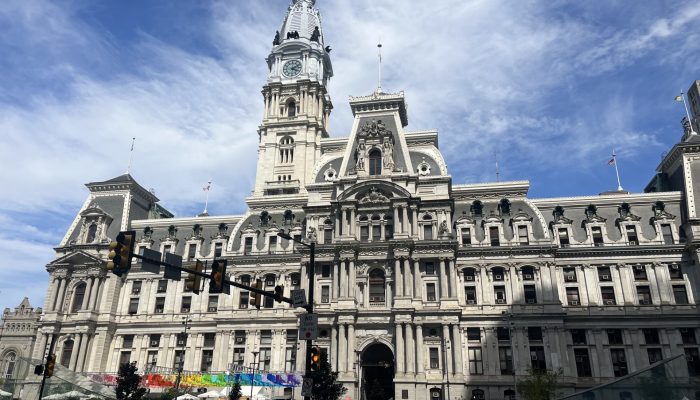Every day, the Health Department is working to address a variety of health care issues that impact everyone in the LGBTQ community. So, during National LGBTQ Health Awareness Week, we thought we’d highlight a few of the many ways we are working to make healthcare better and more accessible to the community.
Mpox
Beginning last spring, we responded to a new health crisis mainly affecting gay and bisexual men and transgender people. By now, most people know that mpox is a contagious disease caused by infection with a virus that’s in the same family as the one that causes smallpox.
But last spring, it was relatively unknown in Philadelphia. Because limited quantities of an effective mpox vaccine were available, the Health Department took decisive steps early on to include members of the LGBTQ community when planning to vaccinate the people most at risk of contracting the disease. A City-led coalition that focused on providing vaccinations to Black and brown people in the LGBTQ community resulted in a significant decrease in disparities and, soon after, the outbreak began diminishing in the fall and early winter. Today, the outbreak has all but abated in Philadelphia.
We continue to strongly recommend that anyone who thinks they might be exposed to mpox get vaccinated as soon as possible. There are locations near you that can provide the vaccine for free.
Tobacco
Serious health issues that significantly impact all members of the LGBTQ community are caused by something that is decreasing but still more common among LGBTQ people than many other groups. Smoking. Tobacco is a leading cause of chronic health conditions and a contributing cause of death of thousands of Philadelphians each year. To help combat that, last year the Health Department announced a new anti-smoking advertising campaign designed to target groups in the city that smoke the most, people in Philadelphia’s LGBTQ community among them.
Learn more about how you can quit today, with free resources and support.
HIV
In Philadelphia, HIV treatment and prevention is better than ever and the City has been diligent in its efforts to help end the HIV epidemic. While infection is certainly not limited to LGBTQ people, the community has been impacted at a higher rate than other groups.
PrEP is a regular treatment taken through pill or injectable that helps prevent HIV. There are places throughout the city where you can get PrEP prescribed. In Philadelphia, a PrEP gap exists because of individual, provider, and systemic barriers ranging from racism, homophobia, transphobia, and HIV-related stigma.
In order to help fill that gap, the Health Department has partnered with Albert Einstein Medical Center to create TelePrEP, a program that is delivered virtually over the phone. The TelePrEP Program is nationally recognized and is one of the few programs in the country run by a public health department.
City-endorsed PrEP Providers include healthcare providers who undergo regular quality assurance checks and secret shopper calls to ensure high-quality services. In addition, the City’s Health Center 1 on South Broad Street provides PrEP services and testing and treatment for sexually transmitted diseases regardless of insurance status.
National LGBTQ Health Awareness Week is designed to help healthcare professionals advocate for, and reduce barriers to, proper care for people in the LGBTQ community. By creating and maintaining safe, inclusive and welcoming healthcare environments for our LGBTQ community, Philadelphia is moving forward to ensure quality, accessible, and non-discriminatory healthcare for everyone.



